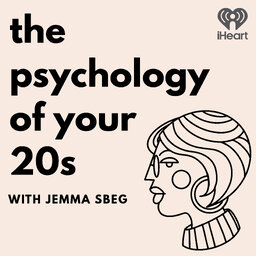254. Cultivating a hot, smart, rich mindset ft. Maggie Sellers
On today's episode we welcome on entrepreneur, founder and Hot, Smart, Rich icon, Maggie Sellers to discuss her formula and mindset for having it all, how she founded her business and her best tips for confidence + more.
Maggie created a unique space on the internet that helps women break into the male dominated spaces of investing, tech and entrepreneurship whilst not sacrificing their authenticity. In this episode we talk about how we can be hot by mastering the psychology of confidence and self-assurance; smart by challenging our beliefs and creating a nuanced media diet; and finally, rich by knowing how to make our money work for us and rethinking our financial habits. This episode will inspire you to get ahead whilst still prioritising what's important to you.
Follow Maggie here: @maggiesellers
Subscribe to Hot, Smart, Rich: https://hotsmartrich.beehiiv.com/
PREORDER MY BOOK: https://www.penguinrandomhouse.com/books/755841/person-in-progress-by-jemma-sbeg/
Follow Jemma on Instagram: @jemmasbeg
Follow the podcast on Instagram: @thatpsychologypodcast
For business: psychologyofyour20s@gmail.com
The Psychology of your 20s is not a substitute for professional mental health help. If you are struggling, distressed or require personalised advice, please reach out to your doctor.
In 1 playlist(s)
The Psychology of your 20s
A podcast that explains how everything is psychology. Even your 20s. Each Tuesday and Friday we deep…Social links
Follow podcast
Recent clips

391. The unconscious vs. conscious mind
42:55

390. The psychology of serial monogamy & relationship hopping
30:10

389. How to experience healthy love after toxic love
55:30
 The Psychology of your 20s
The Psychology of your 20s